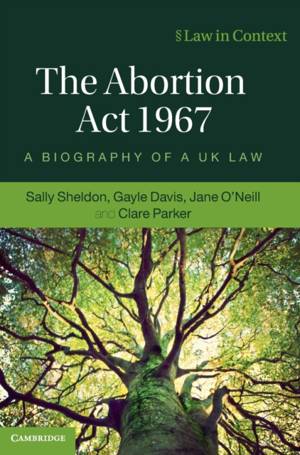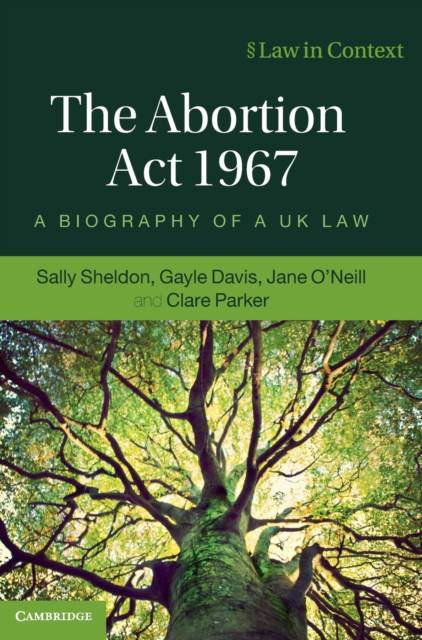
Bedankt voor het vertrouwen het afgelopen jaar! Om jou te bedanken bieden we GRATIS verzending (in België) aan op alles gedurende de hele maand januari.
- Afhalen na 1 uur in een winkel met voorraad
- In januari gratis thuislevering in België
- Ruim aanbod met 7 miljoen producten
Bedankt voor het vertrouwen het afgelopen jaar! Om jou te bedanken bieden we GRATIS verzending (in België) aan op alles gedurende de hele maand januari.
- Afhalen na 1 uur in een winkel met voorraad
- In januari gratis thuislevering in België
- Ruim aanbod met 7 miljoen producten
€ 191,95
+ 383 punten
Uitvoering
Omschrijving
The Abortion Act 1967 may be the most contested law in UK history, sitting on a fault line between the shifting tectonic plates of a rapidly transforming society. While it has survived repeated calls for its reform, with its text barely altered for over five decades, women's experiences of accessing abortion services under it have evolved considerably. Drawing on extensive archival research and interviews, this book explores how the Abortion Act was given meaning by a diverse cast of actors including women seeking access to services, doctors and service providers, campaigners, judges, lawyers, and policy makers. By adopting an innovative biographical approach to the law, the book shows that the Abortion Act is a 'living law'. Using this historically grounded socio-legal approach, this enlightening book demonstrates how the Abortion Act both shaped and was shaped by a constantly changing society.
Specificaties
Betrokkenen
- Auteur(s):
- Uitgeverij:
Inhoud
- Aantal bladzijden:
- 362
- Taal:
- Engels
- Reeks:
Eigenschappen
- Productcode (EAN):
- 9781108496384
- Verschijningsdatum:
- 17/11/2022
- Uitvoering:
- Hardcover
- Formaat:
- Genaaid
- Afmetingen:
- 170 mm x 244 mm
- Gewicht:
- 775 g

Alleen bij Standaard Boekhandel
+ 383 punten op je klantenkaart van Standaard Boekhandel
Beoordelingen
We publiceren alleen reviews die voldoen aan de voorwaarden voor reviews. Bekijk onze voorwaarden voor reviews.









